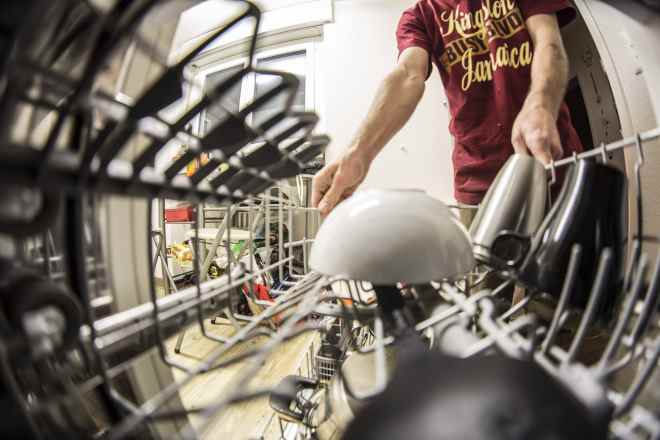Eliminating Odors: A Comprehensive Guide to Freshening Your Home
Unpleasant odors can turn a comfortable home into an unwelcoming space. Whether it's pet smells, cooking odors, or musty scents, dealing with these issues is crucial for maintaining a fresh and inviting atmosphere. This article explores effective strategies and products for eliminating odors, transforming your living space into a clean and fragrant environment.

How do odor eliminators differ from air fresheners?
While air fresheners and odor eliminators both aim to improve air quality, they work in fundamentally different ways. Air fresheners typically mask unpleasant smells with strong fragrances but don’t address the underlying cause. In contrast, odor eliminators target the molecules responsible for bad smells, neutralizing them at the source. This approach not only removes the odor but also prevents it from returning, making odor eliminators a more effective long-term solution for maintaining fresh air in your home.
What types of odor eliminators are available for home use?
There’s a wide range of odor elimination products designed for home use, each with its own strengths:
-
Activated charcoal bags: These natural odor absorbers work by trapping odor molecules in their porous structure.
-
Enzymatic cleaners: Particularly effective for pet odors, these products break down organic matter causing the smell.
-
Ozone generators: These devices produce ozone, which oxidizes odor-causing molecules, but should be used with caution due to potential health risks.
-
Gel-based odor eliminators: These products slowly release odor-neutralizing compounds into the air.
-
Spray odor eliminators: Convenient for spot treatment, these products often contain neutralizing agents that react with odor molecules.
-
Air purifiers with activated carbon filters: These machines actively remove odor-causing particles and gases from the air.
How can air purifiers contribute to odor elimination?
Air purifiers play a significant role in maintaining fresh indoor air and eliminating odors. Models equipped with activated carbon filters are particularly effective at trapping odor-causing particles and gases. These filters work by adsorbing volatile organic compounds (VOCs), smoke, and other odor-causing substances from the air. Additionally, HEPA filters in air purifiers can remove airborne particles that contribute to odors, such as pet dander, dust, and pollen. By continuously circulating and cleaning the air, purifiers not only eliminate existing odors but also prevent new ones from developing, making them a valuable tool in overall home air quality management.
What are natural methods for eliminating odors at home?
For those preferring natural solutions, several effective odor elimination methods use common household items:
-
Baking soda: An excellent absorber of odors, it can be sprinkled on carpets before vacuuming or placed in open containers around the home.
-
White vinegar: Its acidity helps neutralize alkaline odors. Leaving bowls of vinegar in a room can absorb smells over time.
-
Fresh coffee grounds: These can absorb odors and leave a pleasant coffee scent.
-
Essential oils: When diffused, oils like lavender, tea tree, or lemon can naturally freshen the air.
-
Houseplants: Certain plants, such as peace lilies and spider plants, can help purify the air and reduce odors.
-
Proper ventilation: Regularly opening windows to allow fresh air circulation can significantly reduce indoor odors.
How do professional cleaning services tackle stubborn odors?
When DIY methods fall short, professional cleaning services offer advanced solutions for stubborn odors. These services typically employ a combination of specialized equipment and commercial-grade products to address even the most persistent smells.
| Service | Method | Best For |
|---|---|---|
| Ozone Treatment | Uses ozone generators to oxidize odor molecules | Smoke damage, severe pet odors |
| Thermal Fogging | Dispenses deodorizer as a fine mist that penetrates surfaces | Deep-set odors in fabrics and building materials |
| Enzymatic Cleaning | Applies enzyme-based cleaners to break down organic odors | Pet stains and food odors |
| HVAC Cleaning | Cleans air ducts and HVAC systems | Whole-house odor issues |
| Carpet Deep Cleaning | Uses hot water extraction or dry cleaning methods | Embedded odors in carpets and upholstery |
Prices, rates, or cost estimates mentioned in this article are based on the latest available information but may change over time. Independent research is advised before making financial decisions.
Professional services often begin with a thorough inspection to identify odor sources and develop a tailored treatment plan. While more expensive than DIY methods, these services can be particularly effective for severe or persistent odor problems that have resisted other elimination attempts.
In conclusion, effectively eliminating odors from your home requires a multi-faceted approach. By understanding the sources of odors, choosing the right elimination methods, and maintaining good air quality practices, you can create a fresh and inviting living space. Whether opting for store-bought products, natural solutions, or professional services, the key is consistency and addressing the root cause of the odor rather than simply masking it.


